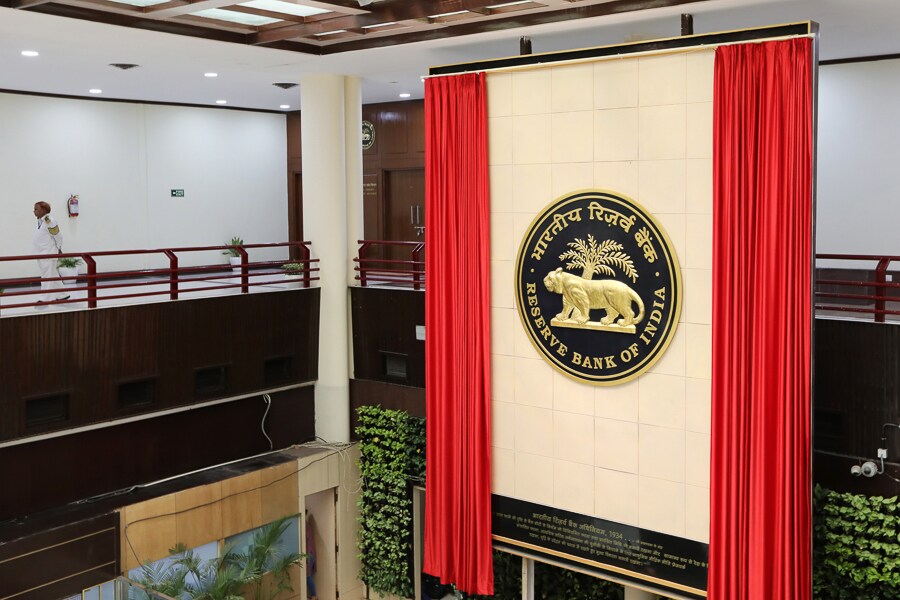Investing in G-Secs: A structural reform, great opportunity... but wait
Factors such as interest rates, liquidity, exit opportunities will be critical factors


 Image: T. Narayan / Bloomberg via Getty Images
Image: T. Narayan / Bloomberg via Getty Images
The Reserve Bank of India, in a bold move, on Friday announced a structurally important reform which will allow individuals to buy government securities directly from the RBI.
While the move is seen as a huge positive to provide investors an alternative form of investment–and thus deepen the market–this benchmark 10-year bond yield at present gives a lower interest than other debt instruments such as the RBI 7-year-bond. It may thus not prove to be an attractive investing opportunity at this stage. This latest reform may have a limited immediate impact, but needs to be looked at from a medium to long-term horizon. Also matters such as a quick exit from the specific investment will become a critical factor in determining its success. Besides, investing in government securities is a cumbersome process, which at this stage may not attract much interest from investors. Hence investors should and need to wait until the regulation and processes are announced before they decide on their investments.
What Das has promised
Prior to the expansion and acceptance of the equity trading cult in India, in the early 1990s, when stock markets saw the listing of several companies, bonds were the more actively traded instrument in India. This was done in a physical form through broker intermediaries until banks gradually took charge. In later years, a specific retail segment was introduced in the secondary market.
RBI governor Shaktikanta Das said on Friday: “In continuation of these efforts, it is proposed to provide retail investors with online access to the government securities market–both primary and secondary–directly through the RBI. This will broaden the investor base and provide retail investors with enhanced access to participate in the government securities market,” Das said.
Currently, in the primary market, trading is being done through a non-competitive bidding process according to RBI-mandated auctions which take place at regular intervals, through facilitators such as stock exchanges and primary dealers for retail bids. Competitive bidding is another alternative, where institutional bidders such as mutual funds and insurers participate. In the secondary markets, retail investors have the option to buy and sell government securities at stock exchanges through different online platforms provided by intermediaries.
Why invest in G-Secs?
These are debt instruments issued by the RBI and backed by the Government of India. The maturity of these products ranges from six months to 55 years, with varying rates of interest. The 10-year G-Sec yield is currently attracting an interest of 6.07 percent. But consider that other products—such as the RBI floating rate savings bond—have an interest of 7.15 percent.
Being backed by the government, there is no credit risk for government securities. But these are influenced by interest rates. When interest rates fall, bond yields fall and bond prices rise. Conversely, if interest rates rise, yields rise and bond prices fall.
So what will investors be able to do now?
As the RBI suggests, investors will be able to buy these bonds, directly through the RBI (called Retail Direct). The RBI will create a platform where investors can buy and sell government securities. We will have to wait and see how this platform is created and what are the documents required.
When you want to exit from a particular investment, liquidity and ease become important factors. Currently the government securities markets, at least in the institutional market, are liquid and offer you an easy exit route. But this is not likely to be the case for the retail segment. Also, other investment products, for example the PPF, do not necessarily offer a simplified exit route.
What the experts say
Vinay Pai, head of fixed income at Equirus Capital says: “This is a great initiative from the RBI to provide an alternate investment opportunity to retailers to purchase government bonds. This is a structural change which in the long term will help broaden the G-Sec market and ease yield pressure on the government borrowing programme.” Technology will enable the retailers to access the central bank ‘Retail Direct’, he adds. Historically these bonds were traded on the exchange floor in the outcry system.
Dr Soumya Kanti Ghosh, group chief economic adviser at the State Bank of India says the RBI announcement is “in line with US treasury’s ‘Treasury Direct’”. Most experts said that at this stage, India is the only Asian market which will offer this facility.
Like the equity markets, where investors have a demat record and trading is done through an electronic platform, a new ledger might have to be created for direct trading in government securities. It might become a challenging task and will need coordination between the RBI and Sebi.
Shobhit Mathur, Senior Director, Kotak Investment Advisors Limited says: "This is a shift from a market which has been dominated by primary dealers, banks, mutual funds, insurance companies. Trade used to happen through NDS – Order Matching under the core banking system of RBI - E-Kuber. Increasing awareness about such bonds and the ease of investment into such bonds will need to match alternate options like fixed deposits, NCDs and corporate bonds which are made popular by banks and brokers in the market. Most retail investors will have to hold such investment till maturity, as sellers for smaller amounts will not find many buyers from dominant players."
Meanwhile...
The RBI in its policy meeting kept interest rates on hold as expected and continued with its “accommodative” stance to facilitate the pace of growth and recovery from the pandemic-induced lockdowns last year. The RBI now pegs India’s GDP for FY22 at 10.5 percent.
First Published: Feb 05, 2021, 20:54
Subscribe Now